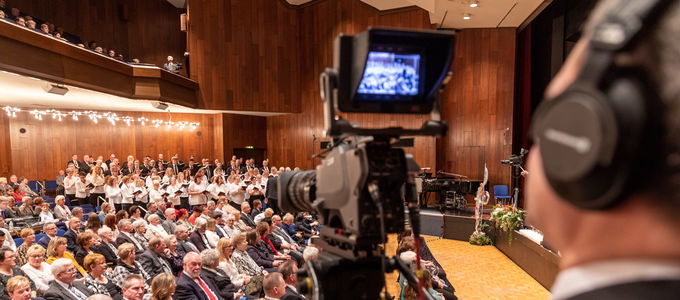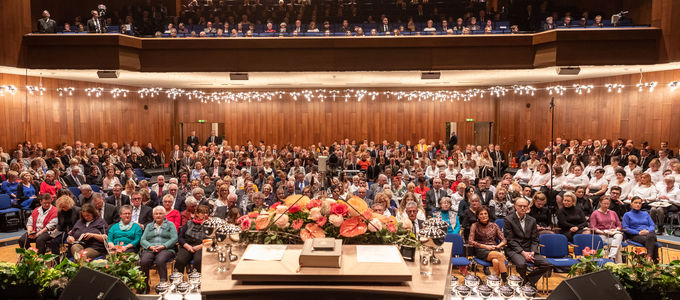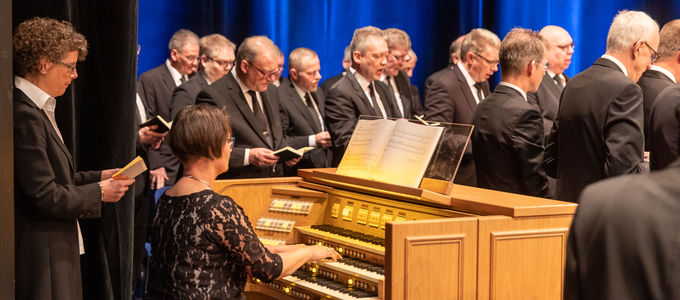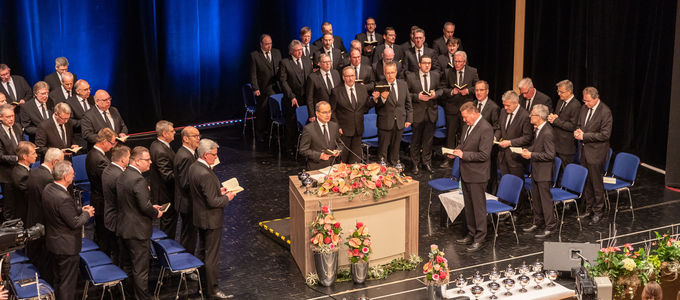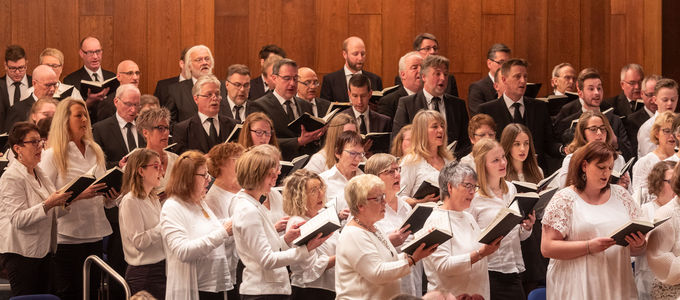
A story with three different meanings: a signal to the world, a comfort for many, and an exhortation to the whole church. Following is the Chief Apostle’s analysis of the story of the widow of Nain.
“When the Lord saw her, He had compassion on her and said to her, ‘Do not weep.’ Then He came and touched the open coffin, and those who carried him stood still. And He said, ‘Young man, I say to you, arise.’ So he who was dead sat up and began to speak. And He presented him to his mother.” This passage from Luke 7, namely verses 13–15, were the basis for the divine service on 16 February 2020 in Meinerzhagen in Germany.
The passage tells the story of a widow whose son had died and who was now destitute and probably even blamed for her own misfortune. Jesus stopped the funeral procession, spoke with the mother, and raised the young man from the dead.
The symbolic act of the Saviour
“The story is a symbol,” Chief Apostle Jean-Luc Schneider explained. “Jesus wanted to show: human beings have been condemned to spiritual death because of sin, but I come as the Saviour to offer eternal life and resurrection.”
Consolation from the compassionate Helper
“Naturally, this also underscores God’s love and care,” the Chief Apostle said. “Jesus Christ can empathise with us because He went through everything that human beings have to go through.”
When He tells the widow, “Do not weep!” it means for all believers: “I know you are hurting. But don’t stop there. Think about what I want to give you and will give you: I want to lead you into eternal life.”
When Jesus tells the young man, “Arise!” He also wants to tell the people of today: “Don’t just lie there. Don’t let yourself be held back by sorrow, by distress, and by suffering. Continue on the path that leads to the goal!”
The exhortation to the church of Christ
“Now, this story can also be interpreted differently,” the Chief Apostle said. For in the Christian tradition the church, the congregation, the fellowship of the believers is often compared to a mother.
“Here and there one gets the impression that the Christian church here in Europe is in the process of a funeral procession,” he remarked. “And now Jesus Christ comes and tells us: ‘Wait a minute! Have you forgotten that I am here? I am here, I live, and I want you to live also!’”
Comfort and strengthen one another
“Don’t weep, do not think only of what has gone lost,” is the exhortation. “Don’t forget the most important thing that is happening in the church: Jesus is in the process of creating a new man in order to bring him into the new creation.”
And: “Rise! Stay firm in your faith. Don’t allow yourself to be knocked down.” For such difficulties have already been announced in the Bible. “There will be no triumphant church as long as we are on earth. The Bible speaks of a church that suffers and struggles.”
“The son of the widow got up and began to speak,” the Chief Apostle continued. What does that tell us? In our congregations, in our ranks, let us talk about our faith and comfort and strengthen one another. This is not about preaching with a microphone behind the altar, but about conversations in the congregation. Let faith, hope, and love come to expression.”






